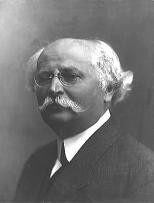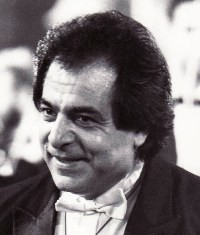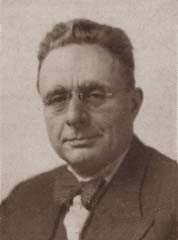
Vyacheslav Ivanovich Suk (Suk, Vyacheslav) |
Suk, Vyacheslav

People’s Artist of the RSFSR (1925). “As a musician who began work under P. I. Tchaikovsky and N. A. Rimsky-Korsakov and worked with them, V. I. took a lot from these masters. He himself was a musician of the greatest importance. As a conductor, he was a master of great erudition, of which we had few: in this respect he can only be compared with Napravnik. He met all the requirements that can be presented to a conductor of a large scale. V. I. was the center of the musical life of the Bolshoi Theater and the greatest authority: his word was the law for everyone – “so said Vyacheslav Ivanovich.”
It is not for nothing that M. Ippolitov-Ivanov compares Bitch with Napravnik in these words. The point is not only that both of them, Czechs by nationality, found a new homeland in Russia, became outstanding figures of precisely Russian musical culture. This comparison is justified also because the role of Sook in the life of the Bolshoi Theater is similar to the role of Napravnik in relation to the St. Petersburg Mariinsky Theater. In 1906 he came to the Bolshoi Theater and worked there until his death. Literally a few minutes before his death, Vyacheslav Ivanovich discussed with his employees the details of the production of The Tale of the Invisible City of Kitezh. The remarkable master passed on the baton of tireless service to art to a new generation of Soviet conductors.
He came to Russia as a solo violinist in an orchestra conducted by F. Laub from Prague, where he graduated from the conservatory in 1879. Since then, his work in the Russian musical field began. There were no stunning ups and downs in his career. Stubbornly and persistently, he achieved the tasks set, gaining experience. At first, the young artist served as a violinist in the orchestra of the Kyiv private opera I. Ya. Setov, then at the Bolshoi Theater. From the mid-80s, his conducting activities began in provincial cities – Kharkov, Taganrog, Vilna, Minsk, Odessa, Kazan, Saratov; in Moscow, Suk conducts performances of the Italian Opera Association, in St. Petersburg he directs the private Novaya Opera. At that time, he often had to work with rather weak orchestral groups, but everywhere he achieved significant artistic results, boldly updating the repertoire at the expense of classical works of Russian and Western European music. Even in that “provincial period” Tchaikovsky became acquainted with the art of Suk, who wrote about him in 1888: “I was positively amazed at his bandmaster’s skill.”
Finally, in 1906, already wiser by experience, Suk headed the Bolshoi Theater, reaching the heights of performing art here. He started with “Aida” and subsequently repeatedly turned to the best foreign examples (for example, Wagner’s operas, “Carmen”); his regular repertoire consisted of about fifty operas. However, the unconditional sympathy of the conductor was given to the Russian opera, and above all to Tchaikovsky and Rimsky-Korsakov. Under his direction, Eugene Onegin, The Queen of Spades, The Snow Maiden, Sadko, May Night, The Legend of the Invisible City of Kitezh, The Golden Cockerel and other masterpieces of great Russian composers were performed here. Many of them were first staged at the Bolshoi Theater by Suk.
He was able to infect the entire performing team with his enthusiasm. He saw his main task in the exact transfer of the author’s intention. Suk repeatedly emphasized that “the conductor must be a benevolent interpreter of the composer, and not a malicious critic who fancies himself knowing more than the author himself.” And Suk tirelessly worked on the work, carefully honing every phrase, achieving the utmost expressiveness from the orchestra, choir, and singers. “Vyacheslav Ivanovich,” says harpist K. A. Erdeli, “always worked out every detail of the nuances for a long time and hard, but at the same time he watched the revealing of the character of the whole. At first it seems that the conductor dwells on trifles for a long time. But when the artistic whole is presented in finished form, both the purpose and the results of such a method of work become clear. Vyacheslav Ivanovich Suk was a cheerful and friendly person, a demanding mentor of youth. An atmosphere of rare enthusiasm and love for music reigned at the Bolshoi Theatre.”
After the Great October Revolution, while continuing his active work in the theater (and not only in the Bolshoi, but also in the Stanislavsky Opera Theatre), Suk systematically performs on the concert stage. And here the conductor’s repertoire was very wide. According to the unanimous opinion of his contemporaries, the pearl of his programs has always been the last three symphonies by Tchaikovsky, and above all the Pathetique. And in his last concert on December 6, 1932, he performed the Fourth and Sixth symphonies of the great Russian composer. Suk faithfully served Russian musical art, and after the victory of October he became one of the zealous builders of the young socialist culture.
Lit.: I. Remezov. V. I. Suk. M., 1933.
L. Grigoriev, J. Platek





